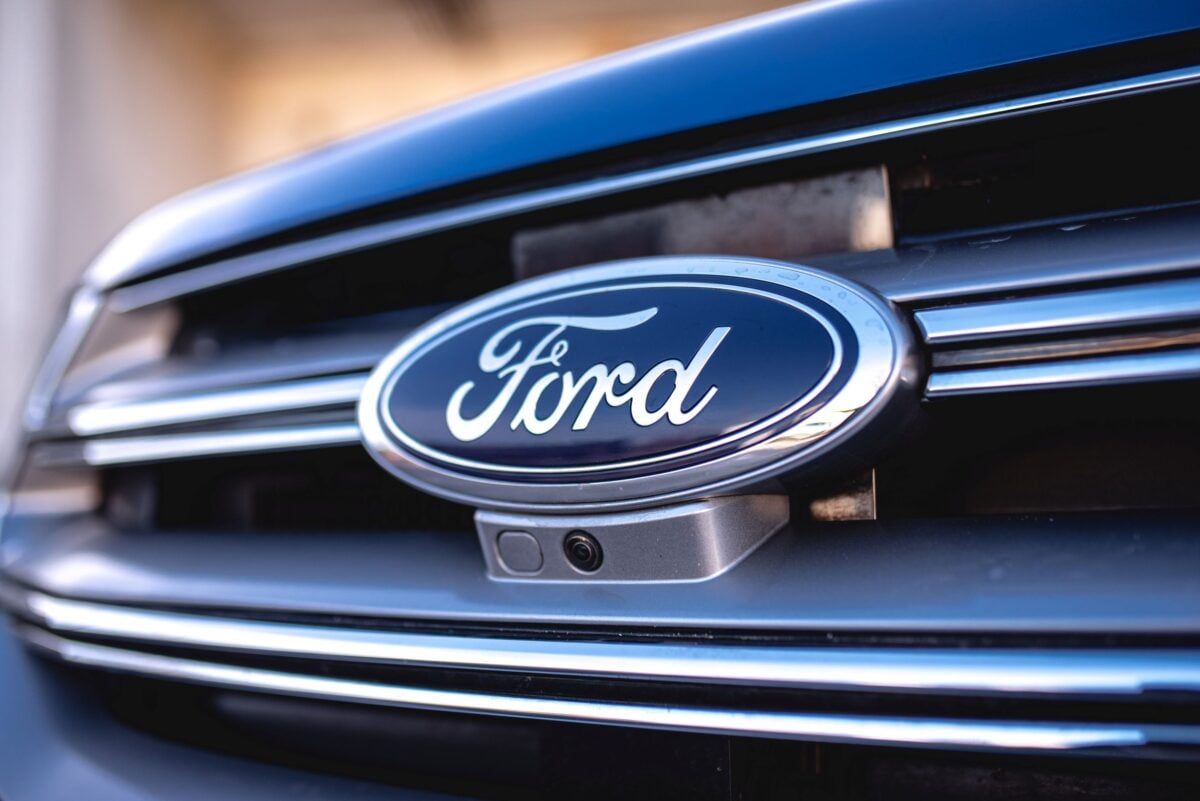TLDR
- Ford reported Q3 operating profit of $2.6 billion on record revenue of $50.5 billion, beating Wall Street expectations of $2 billion profit on $47 billion revenue.
- Earnings per share hit 45 cents, beating analyst estimates of 36 cents, despite facing $700 million in tariff costs during the quarter.
- Full-year 2025 operating profit guidance was lowered to $6 billion-$6.5 billion, down from $6.5 billion-$7.5 billion, due to a fire at aluminum supplier Novelis expected to cost $1.5 billion-$2 billion.
- Ford’s EV division reduced per-car losses to about $28,000 from $38,000 a year ago, while Ford Pro generated $2 billion in EBIT and Ford Credit reported $631 million in operating profit, up 16% year over year.
- The company plans to increase F-series production by more than 50,000 trucks in 2026, creating 1,000 jobs to meet demand and recover from supplier fire production losses.
Ford Motor delivered a strong third quarter performance with record revenue of $50.5 billion and operating profit of $2.6 billion. The results beat Wall Street’s expectations of $2 billion profit on $47 billion in revenue.
The automaker posted earnings per share of 45 cents. Analysts had expected 36 cents per share.
Revenue climbed 9.6% compared to the third quarter of 2024. The company sold about 546,000 vehicles in the U.S. during the quarter, up 8% year over year.
Ford shares rose 3.2% in after-hours trading following the earnings release. The stock had fallen 0.7% during regular Thursday trading.
The company faced $700 million in headwinds from tariffs during the quarter. Despite this challenge, Ford matched its year-ago operating profit of $2.6 billion.
Segment Performance Shows Mixed Results
Ford Pro led the company’s performance with $17.4 billion in revenue and $2 billion in EBIT. The commercial vehicle division continues to be Ford’s strongest business unit.
Ford Blue, the traditional gas-powered vehicle segment, contributed $1.5 billion in EBIT. Revenue growth in this segment outpaced the increase in wholesale unit sales.
The electric vehicle division painted a different picture. Ford Model e reported losses of $1.4 billion as the company invests in electric powertrains.
Per-car losses in the EV division improved to about $28,000. This represents a reduction from closer to $38,000 per car a year ago.
Ford Credit also delivered strong results. The financing arm reported operating profit of $631 million, up 16% year over year.
Operating cash flow reached $7.4 billion for the quarter. Adjusted free cash flow came in at $4.3 billion.
Supplier Fire Impacts Guidance
Ford lowered its full-year 2025 operating profit guidance to $6 billion-$6.5 billion. Previous guidance stood at $6.5 billion-$7.5 billion.
A fire at aluminum supplier Novelis drove the revision. The incident will cost Ford between $1.5 billion and $2 billion in lost production and higher sourcing costs.
Excluding the Novelis impact, guidance would have been raised to approximately $7.5 billion-$8.5 billion. This shows underlying business strength despite the supplier disruption.
Ford plans to increase F-series production volume by more than 50,000 trucks in 2026. The company will create 1,000 jobs to meet demand and recover production losses from the fire.
The company expects adjusted free cash flow of $2 billion-$3 billion for the full year. Ford’s board approved a fourth quarter dividend of 15 cents per share.
Ford stock has climbed 26% year-to-date through Thursday’s trading. The shares traded at $12.43 before the earnings release, up from a low of $8.44 in April.
Analysts maintain a consensus “hold” rating on Ford stock. The breakdown includes 3 buy ratings, 18 hold ratings, and 3 sell ratings.
Wall Street’s median 12-month price target stands at $11.00. This represents a 14.2% discount to the recent closing price of $12.56.
Ford was the last major U.S. automaker to report third quarter results. General Motors beat expectations while Tesla fell short.
U.S. new car demand has remained resilient, up 4% year over year through August. The average price of a new car has climbed above $50,000, partly due to import tariffs.





